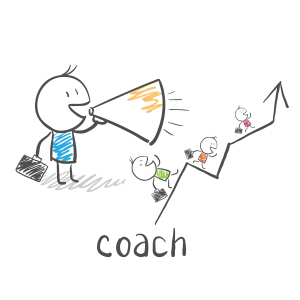 Lack of growth opportunities for employees often become a hindrance in developing employees. You think this might be absurd, but it’s not. Some of them think, “I have a crappy job, so I’ll just wing it. I’ll start working harder when I get a promotion.”
Lack of growth opportunities for employees often become a hindrance in developing employees. You think this might be absurd, but it’s not. Some of them think, “I have a crappy job, so I’ll just wing it. I’ll start working harder when I get a promotion.”
About 72% of disengaged employees in a study conducted by Quantum Workplace say that they do not have enough opportunities for their professional growth. On the other hand, only about 43% of the surveyed engaged employees feel the way.
When employees know that they have better career growth opportunities, or that there are pathways laid out to reach those opportunities, it drives them better to work harder for the company.
The lack of noticeable growth in any given job leads to higher turnover rates. You can’t just expect people to continue doing well, let alone enjoy the same job for 5 to 10 years! It’s natural for people to look for growth and new challenges in other places. You can’t really blame them for this.
The report, entitled The 2013 Engagement Trends, had the following results:
An overwhelming 81% of employees think identifying opportunities for further growth and development should be a collaborative process actively discussed by both employees and their respective managers.
More than half, or about 54% of employees wanted additional training specific to their particular jobs. This includes people skills, training and academic learning.
About 85% of disengaged and hostile employees say they do not receive coaching from their bosses, or that they don’t receive feedback often.
Tuition reimbursements and internal company training sessions were considered as the most popular ways for developing employees.
You know developing employees is crucial to every facet of the business, but your company already provides training and promotions to deserving candidates.
I hear you.
What MORE can You Do to Help?
Although career progression is one of the best drivers of employee performance, the truth remains: it’s impossible to extend all employees a promotion, even if all of them are good.
Whenever somebody is promoted, it’s inevitable for his peers to feel some level of resentment towards the one promoted and the person who promoted him. Thankfully, there are things you can do to help appease the situation.
Talk and Listen
There are times when an employee gets resentful because somebody else was promoted. Sit down with the employee and don’t be scared to talk. It might be difficult at first and it might even be awkward, but it would help him see why he was not the one who was promoted. It helps clear the air while establishing the reasons behind the decision for said promotion.
Offer advice about developing his skills even further and give feedback on his weaknesses, specifically the reasons why he wasn’t chosen for the job. Through these simple talks, a manager can help in encouraging and developing employees while at the same time, creating a less hostile environment for everybody.
If an employee really wants to be promoted, he would do almost everything in his power to be eligible for the next promotion. He would get over all the negative feelings after your talk and work his way up. This is where you can help by offering him tips to develop his skills, such as training sessions or continuing education. It also serves a good reminder for them not to lose hope of being promoted next time.
Don’t get tired of helping developing employees, and they would, in turn, work hard and become more beneficial for the organization.

Are You the Leader
You Want to Be?
Are you the style of leader you think you are? Take the leadership quiz and find out your leadership style.
You’ll learn what impact your particular style has on performance, productivity and satisfaction of the team.








